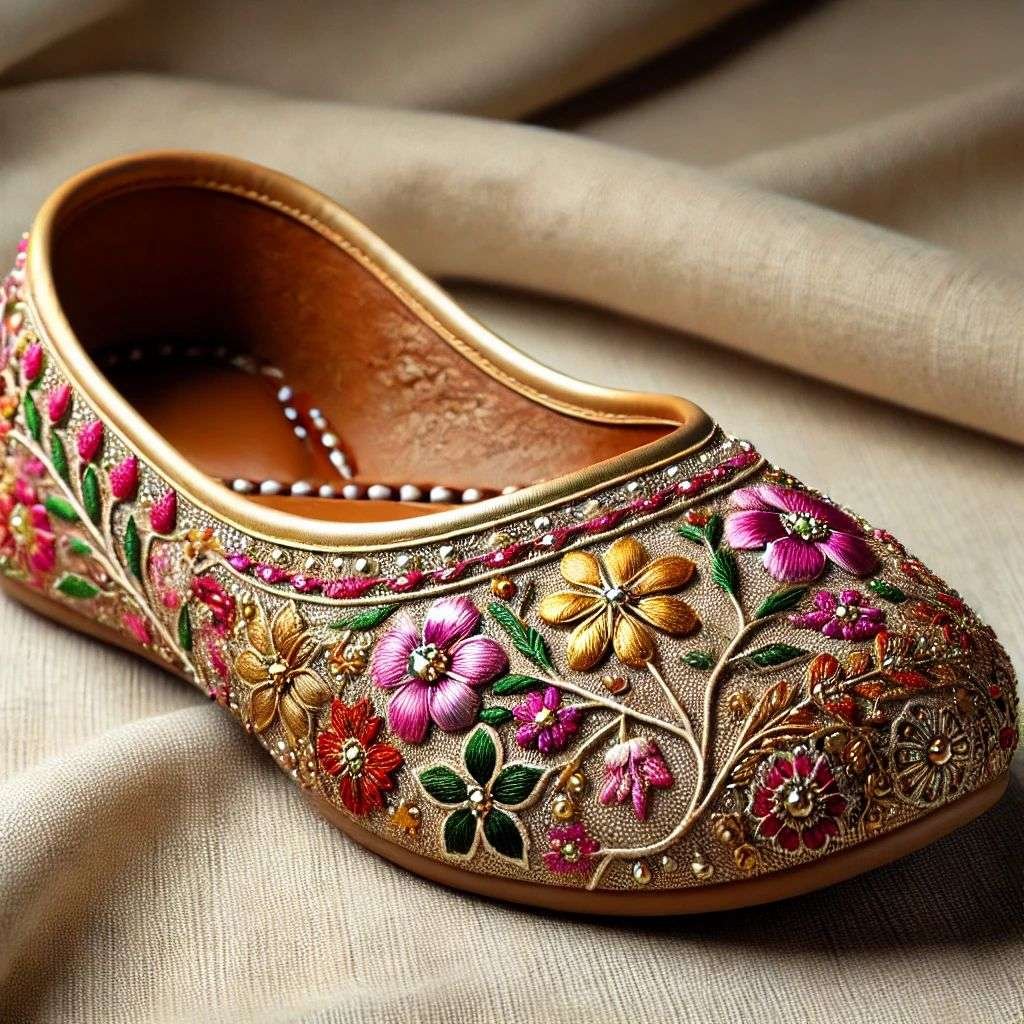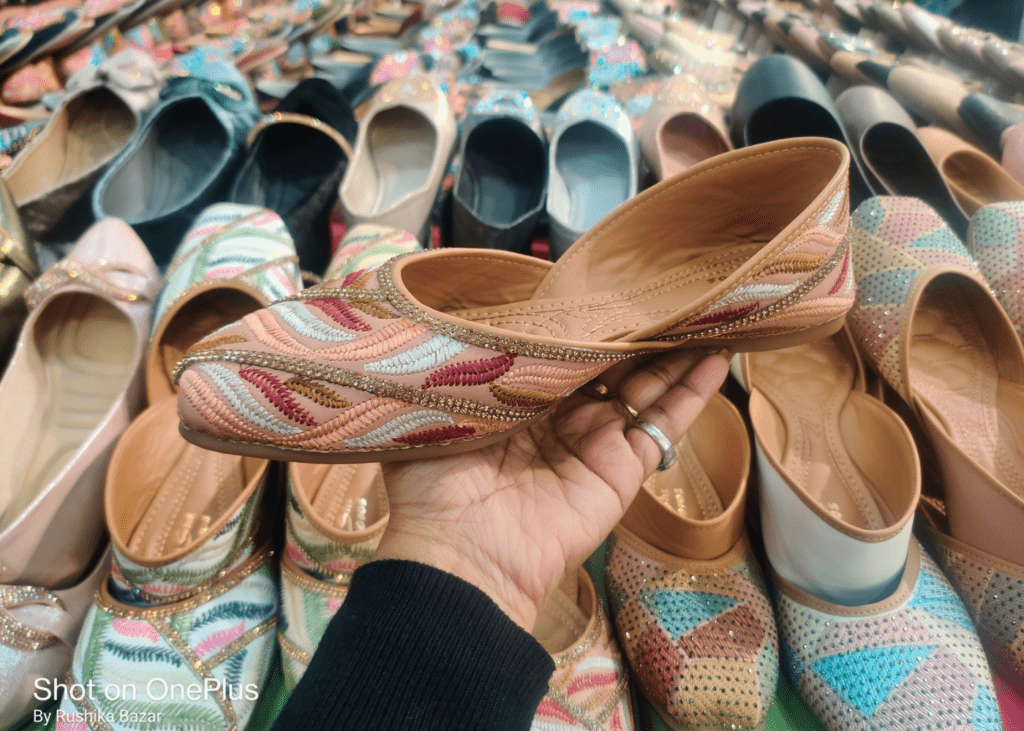Punjabi Jutti are an essential part of South Asian footwear, known for their intricate embroidery and cultural significance. While both Pakistani and Indian Punjabi Jutti share common roots, they have distinct differences in design, craftsmanship, and style.
1. Design & Embellishments
Pakistani Jutti often feature delicate thread embroidery, mirror work, and subtle embellishments inspired by Mughal and Sindhi artistry. They tend to have a softer, elegant appeal.

Indian Jutti are known for bold, colorful embroidery, zaari work, beads, and sequins, often showcasing traditional Punjabi motifs with a more vibrant aesthetic.

2. Craftsmanship & Materials
Pakistani Jutti are typically handcrafted from premium leather with softer cushioning, making them more comfortable for long wear.
Indian Jutti focus on durability and intricate detailing, using thicker leather or faux leather with detailed stitching and heavy embellishments.
3. Cultural Influences
Pakistani Jutti draw inspiration from Mughal-era designs and Sindhi embroidery, often incorporating pastel tones and floral motifs.
Indian Jutti reflect Punjabi folk culture, featuring bold colors, peacock designs, and heavy gold or silver threadwork.
4. Occasion & Styling
Pakistani Jutti are often preferred for weddings, Eid celebrations, and formal events, with an emphasis on elegance.
Indian Jutti are commonly worn for festivals, weddings, and daily wear, complementing vibrant ethnic outfits.
Conclusion
Both styles are beautiful and unique in their own way. Pakistani Jutti lean towards elegance and comfort, while Indian Jutti embrace boldness and traditional grandeur. Choosing between the two depends on personal style and the occasion!
Here are some designs of Indian Women’s Jutti




